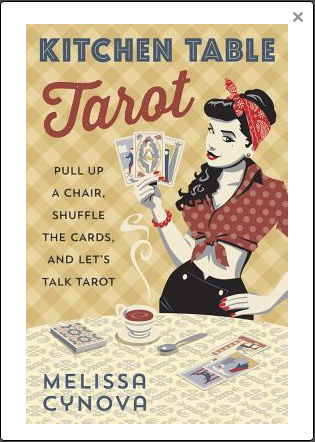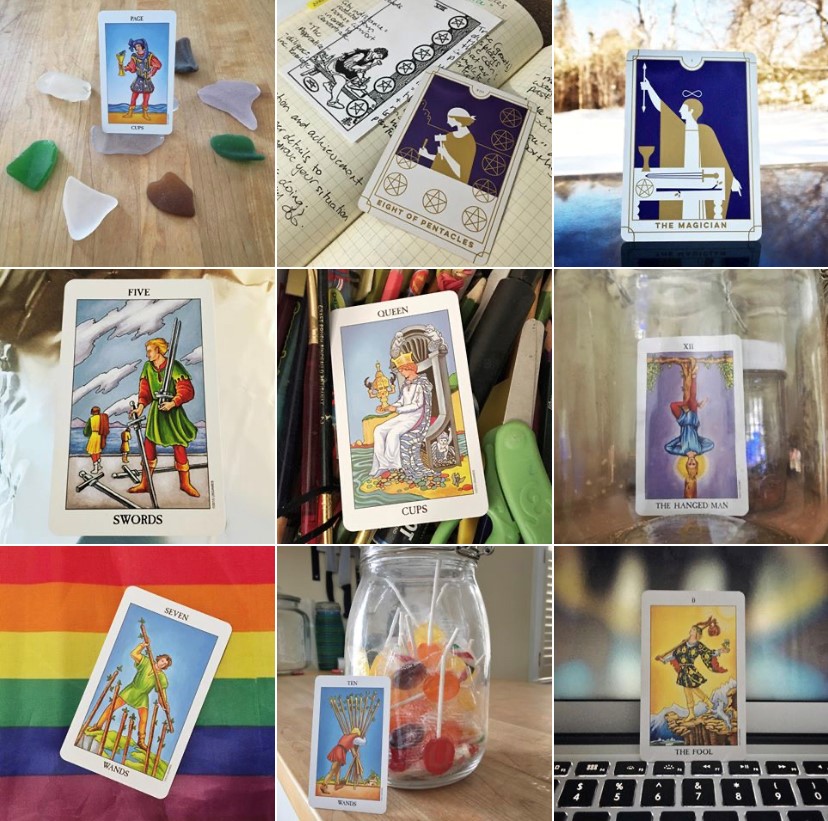One of the first tarot books I read was Kitchen Table Tarot by Melissa Cynova. I had had very little exposure to tarot, and knew practically nothing about the cards, their meaning, or how to read, and found it an excellent introduction to reading tarot. Cynova has a breezy, chatty and accessible style that was particularly helpful when I was brand new to trying to wrap my head around and not be overwhelmed by what can be a complex and intimidating system of meanings. It truly does feel like Cynova is sitting across the table from you, chatting about what she’s learned through years of reading tarot for others. She has a very modern sensibility, and strips away most of the esoteric mysticism I was expecting from a tarot book.

The majority of the book is composed of card interpretations, including an interpretation for reversals as well. Her descriptions and examples are rooted in the modern world. She describes, for example, the Knight of Cups: “He sits in the quad. Jeans, a white T-shirt, and a worn copy of Vonnegut dangling limply from his hand as he stares out into the distance. He smokes, of course, and his dark hair is tousled and curly. […] He looks sad, and his sadness is on your mind for the rest of your life. Dear heavens, does this one make an impact. He is so romantic, I can’t even stand it.” The flip side of this, though, is probably my only concern or complaint about the book: the interpretations were great for a quick understanding of the character of each card, but I found I needed other resources to develop a deeper and more comprehensive ability to interpret the cards myself
Despite the casual tone, there’s a lot of information packed into this book. In addition to Cynova’s personal anecdotes and insight, she weaves in some basic numerology and astrology and suggestions for reading and building spreads. She offers advice on the ethics of reading for others and considerations for going pro, but I found this book would be more appropriate for those looking to understand tarot for fun and personal study.
If you’re looking for a fun read that serves as a great introduction to tarot reading, I’d recommend this book. I got it from the local public library!

